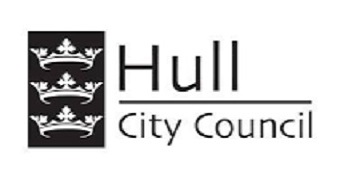The drumbeat of voluntary social action
 In every community and every neighbourhood and every day, citizens are volunteering to support their neighbours and their communities. This should be celebrated.
In every community and every neighbourhood and every day, citizens are volunteering to support their neighbours and their communities. This should be celebrated.
Even though I do not agree with all of Colin Rochester’s thesis, reading his Rediscovering Voluntary Action: the beat of a different drum has reminded me of the historic and contemporary importance of voluntary social action.
More often than not, voluntary social action is spontaneous, requiring no intervention or support from the public sector; and is commonly informally arranged by the participants who may be acting singularly or together with fellow citizens. The recent floods have provided many positive examples of such action.
Voluntary social action can take the form of services or direct action – for example, a local project to improve the environment. It may involve campaigning to oppose some unwanted policy or action, which is deemed to have a negative impact on the community. On the other hand, it can also involve positive campaigning for the benefit of a neighbourhood or community. Actually, campaigning and protest are as legitimate to voluntary social action as is the provision of a service.
Voluntary social action can be founded both on a cause and the delivery of a service. The provision of a service may be accompanied by campaigning – for example, campaigning for better provision for young people could be accompanied by the establishment of a voluntary youth club, or the establishment of a food bank by a campaign against welfare changes and poverty.
Social action can bring about massive change in public attitude, behaviours and public policy, as exemplified by the campaign for the ‘Living Wage’.
Traditionally, voluntary social action has led to the creation of co-operatives, trade unions, friendly societies, voluntary organisations and empowered communities – some being faith-based, some secular, some in harmony, and some in conflict with the public sector and business sector establishments. It has taken many forms and will continue to so.
Those engaged in voluntary social action in whatever form are commonly motivated by a desire to improve outcomes for their fellow citizens, and often their own families too. They may also have other motives, which are more about themselves than others. All of these drivers are legitimate and should be recognised as important and valued.
Some opt for a more formal, structured pattern of volunteering for organisations, which can provide some order to their activities. Others prefer to volunteer on a more informal basis, keen to avoid bureaucratic processes and procedures, which, if not properly managed, can all too easily stifle initiative and voluntary action.
And most excitingly, rising numbers of volunteers are discovering the potential to provide their social action online, with the ability to offer professional and other support to voluntary organisations and communities ‘virtually’.
With the latter in mind, there is absolutely no doubt that social media is playing an increasingly vital role in voluntary social action as it will in political activism. It provides a means to communicate between and with volunteers; to alert potential volunteers and campaigners to issues and demands; to mobilise volunteers and social action; and is a means of facilitating campaigning locally, nationally and internationally. And where it is appropriate, social media and technology can enable organisations to ‘manage’ and measure the impact of volunteering.
The reality is that volunteering and the call to voluntary social action takes many, many forms.
Volunteers are, almost by definition, not remunerated though in some cases they may have their expenses paid if they are involved with an organisation with the finance necessary to support this. That said, there is a case for considering how, in some circumstances, volunteers could be incentivised to offer time and expertise through reward schemes, which potentially could be supported by businesses and the public sector. I have in mind ’rewards points’ that could be used for discounts for retail goods or even public services – although such an approach should never be allowed to distort the values of the participating bodies or the motivation of those volunteering.
It is a fact that the majority of voluntary organisations receive no financial support from the public sector – rather, they rely on voluntary social action and fundraising, even when they employ staff. Others rely on some form of public sector grant though increasingly, this is less the case as the migration from grants to contracts continues at a pace. That said, grants have a role to play and should not be abandoned.
Voluntary organisations which are able and willing to contract with the public sector to deliver public services need to be careful to protect their values and their independence. In particular, they must take great care in how they factor in the contribution made by volunteers to what otherwise would be undertaken by paid staff, and be clear about the subsidy that volunteering might be contributing to the public sector. As the public sector cuts expenditure, it is too easy for politicians and commissioners to ‘assume’ that the voluntary sector will be able to plug the gaps with volunteers and/or charitable fund raising.
Whilst I have mentioned public service contracting in this article, the reality is that the majority of successful voluntary social action is unconnected with this. Rather, it is more commonly about the pursuit of:
- social goals such as equality, inclusion, opportunity and fairness
- social, economic and often environmental change
- meeting unmet needs
Economic growth is a priority for most places across the country, but the pursuit of such should not be separated from the growth of social capital and community capacity, both of which are critical components. Social action should, therefore, be seen as being as fundamental to economic growth as it is to social outcomes.
Voluntary social action will often involve innovation, risk taking and a willingness to act in ways that are for many people ‘outside the mainstream’. The net result will thus often be to challenge orthodoxy and the establishment. People-led, the oxygen such organisations require to function is the need to be independent in as much as they must be free to challenge governments, local government, businesses and others, even if and when in receipt of public or business money or delegated responsibilities.
The public sector and politicians in particular should welcome a healthy civil society where voluntary social action thrives; and offer positive support and encouragement. Across the country we could and should be hearing the drumbeat of voluntary social action marching in support of communities.













